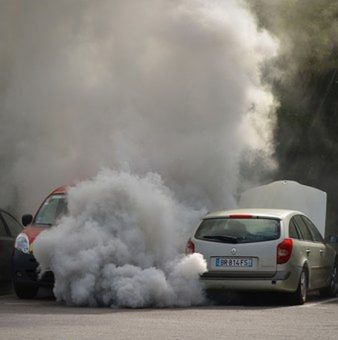
Theresa May has admitted the full scale of the UK’s air pollution crisis, in a letter acknowledging poor air quality is the fourth biggest health risk for the British public after cancer, obesity and cardiovascular disease.
The letter, obtained by the Evening Standard, was written in response to a letter sent last month by more than 200 doctors from across the UK which warned “time is running out” to prevent health damage caused by pollution from diesel cars.
In her reply May admitted the scale of the health impacts caused by poor air quality were significant. “Poor air quality is the fourth largest risk to public health, behind only cancer, obesity and cardiovascular diseasem” she wrote. “It disproportionately affects some of the most vulnerable in our society, including the elderly, people with lung and heart conditions, and the very young.”
Some campaigners were quick to point out that the risks of both cancer and cardiovascular disease are exacerbated by poor air quality.
In their original letter to the Prime Minister the group of doctors called for the government to introduce a diesel scrappage scheme to take the most polluting diesel cars off the road and accelerate the shift to ultra-low emission cars.
But although May also blamed diesel cars as a major source of pollution for the UK’s urban areas, she stopped short of committing to a diesel scrappage scheme. “I agree with you that one of the main reasons our cities continue to face pollution problems is the significant levels of NOx (nitrogen oxides) emissions that diesel vehicles produce,” she wrote. “Harmful emissions from transport contribute significantly to the air quality challenge we face.”
May has in recent weeks hinted drivers of diesel cars could be in line for financial help for replacing their cars, saying she is “mindful” of the fact the last Labour government encouraged the purchase of diesels through a series of tax breaks. Diesel cars produce less carbon dioxide than petrol, but can generate more than twice as much particulate pollution, which contributes to poor air quality.
The government’s latest air quality plan is due to be published in the next fortnight, and will contain more details of the government’s plan to establish a series of clean air zones around the country in a bid to slash air pollution.
Reports suggested the plan could include the removal of traffic calming measures such as speed bumps in clean air zones, which force drivers to repeatedly speed up and slow down again – increasing particulate pollution. Further reports have indicated the most polluting cars could also be charged up to £20 a day to enter a number of city centres across the UK.
Source: businessgreen.com



